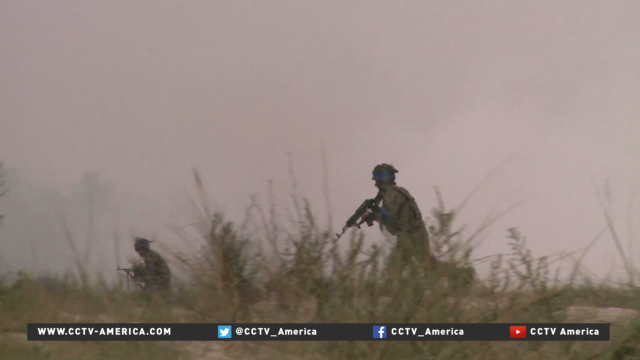After combat operations in Afghanistan have ended, NATO is shifting its focus to Europe. It is creating a new ultra-rapid-response force; all to deter Russia.
CCTV’s Jack Barton reported this story from Brussels.

In its withdrawal from Afghanistan NATO finds that for the first time in 15 years, it’s not involved in combat operations beyond its borders.
That doesn’t mean no major threats are on NATO’s radar, but their focus has swung back towards Europe.
“There’s a real realization that Europe is no longer safe from real threats,” NATO analyst Bruno Lete, German Marshall Fund of the United States said. “In the East we see a revisionist Russia and certainly the invasion of Ukraine has really shaken up European leaders for the fact that a conventional attack on Europe is again a potential possibility.”
NATO Secretary General Jens Stoltenberg spent this week reassuring allies in Berlin as well as former Eastern Bloc countries that have been rattled by Russia’s perceived interference in Ukraine.
“NATO is ready to do what it takes and we are determined to do whatever it takes to defend our allies against any threats and that’s the reason why we are developing the readiness action plan,” NATO Secretary General Jens Stoltenberg said.
The core of their plan is a rapid response capability known as the ‘spearhead force.’
The spearhead force is expected to consist of five thousand soldiers, backed by air and sea power, who can respond to any threat within days.
An interim force is already operational, but question loom about who will fund this specialized team once it reaches full strength.
“European defense budgets are historically low and some individual nations have very limited capabilities,” Lete said. “Even nations like France or the UK would find it difficult to sustain a military campaign for a sustained amount of time beyond its borders.”
Their capabilities are also being tested by airstrikes in Iraq and Syria targeting the Islamic State group known as ISIL, which in the wake of the Paris attacks and Belgian anti-terror raids also appears to be an emerging threat within Europe’s borders.
 CGTN America
CGTN America
